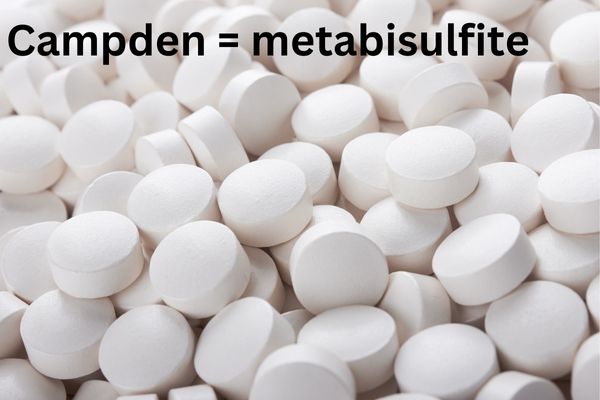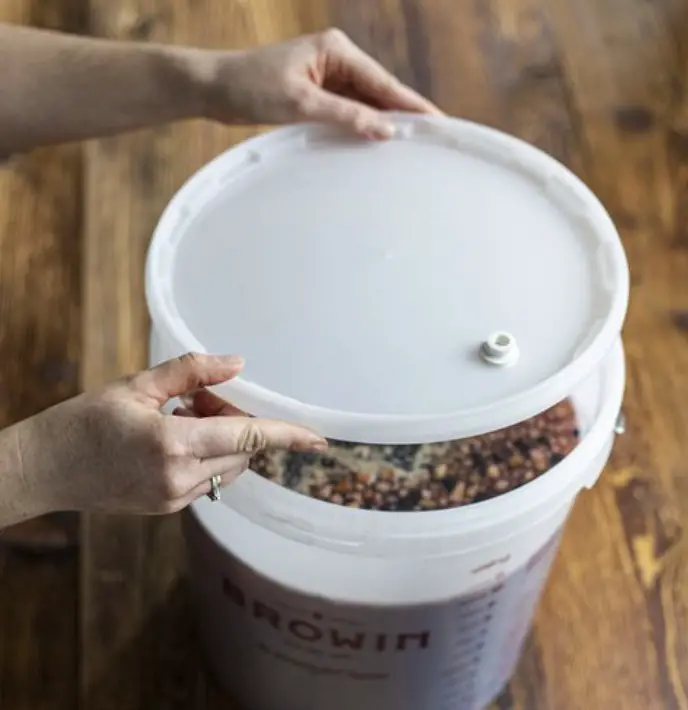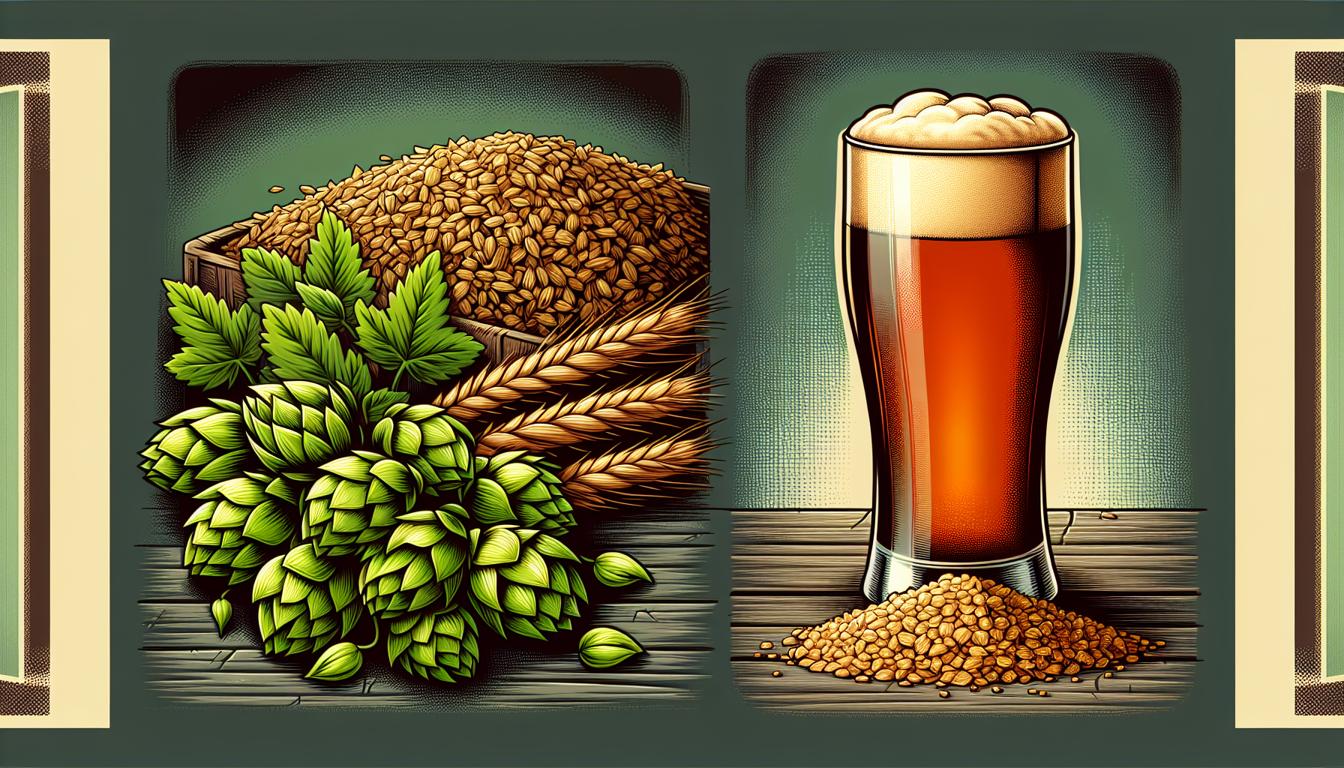Does Prosecco have sulfites? The short answer is yes, Prosecco, like most wines, usually contains sulfites. However, the topic is more complex than that.
As an experienced home brewer and wine enthusiast, I have had my fair share of questions and concerns regarding sulfites in Prosecco and other wines.
Prosecco does contain sulfites that are both naturally occurring and added during the winemaking process. It contains between 10 ppm (low sulfite variants) up to 200 ppm.
In this blog post, I will delve deeper into the subject of sulfites in Prosecco, discuss the reasons for their presence, and provide alternatives for those who are sensitive to sulfites.
What are sulfites?
Sulfites are compounds that are naturally occurring in some foods and are added to others as a preservative. They are also a byproduct of the fermentation process, which means that they can be found in varying amounts in all wines.
The most common form of sulfite found in wine is sulfur dioxide (SO2). Sulfites are used in winemaking for various reasons, including stopping fermentation, preventing oxidation, and protecting the wine from spoilage caused by bacteria and yeast.
Sulfites in Prosecco
Prosecco is a sparkling Italian wine made primarily from the Glera grape. Like other wines,
Prosecco contains sulfites that are both naturally occurring and added during the winemaking process.
The amount of sulfites in Prosecco can vary depending on factors such as the quality and age of the grapes, the fermentation process, and the winemaker’s techniques.
Does organic Prosecco contain sulphites?
Yes, organic Prosecco contains sulphites. Sulphites are a natural byproduct of the fermentation process and are also commonly used as a preservative in winemaking.
While organic Prosecco is made with organically grown grapes and follows strict organic farming practices, it does not mean it is completely free of sulphites.
However, the sulphite levels in organic Prosecco are usually lower compared to conventional Prosecco, as organic winemakers generally use fewer sulphites in their production. It is important to note that sulphites are naturally present in all wines to some extent, regardless of whether they are organic or not.
Why do Prosecco and other wines contain sulfites?
As mentioned earlier, sulfites are present in wines for a variety of reasons. One of the primary reasons is to preserve freshness and prevent oxidation.
Oxidation occurs when wine is exposed to oxygen, causing it to lose its fruity flavors and take on a flat, stale taste.

Sulfites act as an antioxidant, protecting the wine from oxidation and preserving its freshness and flavor.
Sulfites also help to protect wines from spoilage caused by bacteria and yeast. They are particularly important in wines that have a higher sugar content, such as dessert wines, as they inhibit the growth of unwanted microorganisms that could spoil the wine.
Are sulfites harmful?
For the vast majority of people, sulfites in wine are not harmful. However, some individuals may have a sensitivity or allergy to sulfites.
Symptoms of a sulfite sensitivity can include headaches, hives, swelling, and in rare cases, difficulty breathing. It is important to note that sulfite sensitivity is relatively uncommon, affecting an estimated 1% of the population.
Sulfite-free Prosecco and other wines
If you have a sulfite sensitivity or simply prefer to consume wines with lower sulfite levels, there are some options available.
While it is nearly impossible to find a completely sulfite-free wine, there are low-sulfite wines on the market.
These wines are made with minimal intervention and contain significantly lower levels of added sulfites than conventional wines.
How to identify wines with lower sulfite levels
When searching for wines with lower sulfite levels, look for those labeled as “organic” or “biodynamic.” These wines are made using minimal intervention techniques and contain fewer added sulfites than conventional wines.
Additionally, you may find wines labeled as “no added sulfites” or “naturally low in sulfites.” Keep in mind that these wines may still contain naturally occurring sulfites, but the levels will be significantly lower than those found in conventional wines.
Enjoying Prosecco responsibly
As with any alcoholic beverage, it is important to enjoy Prosecco responsibly and in moderation. If you are concerned about sulfites in Prosecco, consider trying one of the lower sulfite options mentioned above. Remember that sulfite sensitivity is relatively uncommon, and for most people, the presence of sulfites in wine is not harmful.
Conclusion
To answer the question, “Does Prosecco have sulfites?” – yes, it does. However, the presence of sulfites in Prosecco and other wines should not be a cause for concern for most people. If you have a sensitivity to sulfites, there are lower sulfite wine options available. So, go ahead and enjoy your Prosecco responsibly and with confidence!
10 facts about sulfites in Prosecco:
1. Prosecco contains both naturally occurring and added sulfites.
2. Sulfites are used in winemaking to preserve freshness, prevent oxidation, and protect against spoilage.
3. The most common form of sulfite found in wine is sulfur dioxide (SO2).
4. The amount of sulfites in Prosecco can vary depending on factors such as grape quality, fermentation process, and winemaker’s techniques.
5. Sulfite sensitivity affects an estimated 1% of the population.
6. Symptoms of sulfite sensitivity can include headaches, hives, swelling, and in rare cases, difficulty breathing.
7. It is nearly impossible to find a completely sulfite-free wine.
8. Low-sulfite wines are available and are typically labeled as “organic,” “biodynamic,” “no added sulfites,” or “naturally low in sulfites.”
9. Sulfites are not harmful to the vast majority of people.
10. Enjoy Prosecco responsibly and in moderation, with or without sulfites.
FAQs
Which alcohol does not have sulfites?
All types of alcohol naturally contain trace amounts of sulfites. Sulfites are a group of sulfur-based compounds that occur naturally during the fermentation process. However, the levels of sulfites in alcohol are generally low and are often not a concern for most individuals, unless they have a specific sensitivity or allergy to sulfites.
That being said, certain alcoholic beverages tend to have higher levels of sulfites due to additional sulfite-containing additives used during production. For example, wines, particularly white wines, are known to contain higher levels of sulfites compared to other alcoholic beverages. This is because winemakers often add sulfites as a preservative to prevent spoilage and oxidation.
While it is challenging to find an alcohol that is completely free of sulfites, there are alternative options for individuals who are sensitive to sulfites. For instance, distilled spirits such as vodka, whiskey, rum, and tequila generally have lower sulfite levels compared to wines and beers. This is because the distillation process helps to reduce the concentration of sulfites.
If you have a sulfite sensitivity or allergy, it is advisable to read product labels carefully and look for alcoholic beverages labeled as “sulfite-free” or “no added sulfites.” Additionally, consulting with a healthcare professional or allergist can provide personalized advice and guidance regarding your specific needs.
Is Prosecco sulfate free?
No, Prosecco is not sulfate-free. Sulfur dioxide (SO2) is commonly used in winemaking, including the production of Prosecco, as a preservative and antioxidant. It helps prevent the growth of unwanted microorganisms and preserves the wine’s freshness. Sulfur dioxide is also naturally produced during fermentation, but additional amounts may be added to control the wine’s stability and prevent oxidation. However, it’s worth noting that the levels of sulfites in Prosecco are generally lower compared to other types of wine.
What alcohol does not have sulfites?
Sulfites are commonly used as preservatives in alcoholic beverages to prevent oxidation and maintain flavor stability. However, some individuals may have sulfite sensitivity or allergies, leading them to seek sulfite-free alcohol options. While it is challenging to find completely sulfite-free alcoholic beverages, certain types of alcohol naturally contain very low levels of sulfites or are produced without the addition of sulfites. Here are a few examples:
1. Distilled Spirits: Most distilled spirits, such as vodka, rum, whiskey, gin, and tequila, are generally sulfite-free. During the distillation process, sulfites are typically removed, resulting in negligible levels in the final product.
2. Pure, Unfortified Wines: Some pure wines made without the addition of sulfites may have extremely low levels of sulfites or be labeled as sulfite-free. These wines are often produced using meticulous winemaking techniques to prevent oxidation and maintain stability without the need for sulfite preservatives.
3. Organic Wines: Organic wines are made from organically grown grapes and are produced without the use of synthetic chemicals, including sulfites. However, it’s important to note that organic wines may still contain naturally occurring sulfites, although in significantly lower amounts compared to conventionally produced wines.
4. Biodynamic Wines: Biodynamic wines are similar to organic wines but are produced following certain principles and practices outlined in biodynamic agriculture. Like organic wines, biodynamic wines are typically made without the addition of sulfites, but they may contain trace amounts of naturally occurring sulfites.
It’s crucial to read product labels carefully to determine the sulfite content or look for wines labeled as “sulfite-free” if you have sulfite allergies or sensitivities. Additionally, consulting with a healthcare professional is recommended for individuals with severe sulfite allergies to ensure their safety when consuming alcohol.
Do all Prosecco contain sulphites?
Yes, all Prosecco wines contain sulphites. Sulphites, specifically sulfur dioxide, are commonly used in winemaking as a preservative and antioxidant to prevent oxidation and microbial spoilage. They help maintain the freshness and stability of the wine during storage and transportation. Sulphites are naturally produced during fermentation, but winemakers often add additional sulphites to ensure the wine’s quality and longevity. The amount of sulphites in Prosecco can vary, but they are present in all commercially available bottles. It’s worth noting that sulphites can cause allergic reactions in certain individuals, and therefore, the presence of sulphites must be disclosed on the label of the wine bottle.
Is there preservatives in Prosecco?
No, there are no preservatives added to Prosecco. Prosecco is made using the Charmat method, which involves a secondary fermentation in a stainless steel tank. This process preserves the natural freshness and fruity flavors of the wine, eliminating the need for preservatives. However, it is important to note that Prosecco can contain sulfites, which are naturally occurring compounds that act as a preservative and are found in many wines. Sulfites are also used as a preservative in other food and beverage products.




